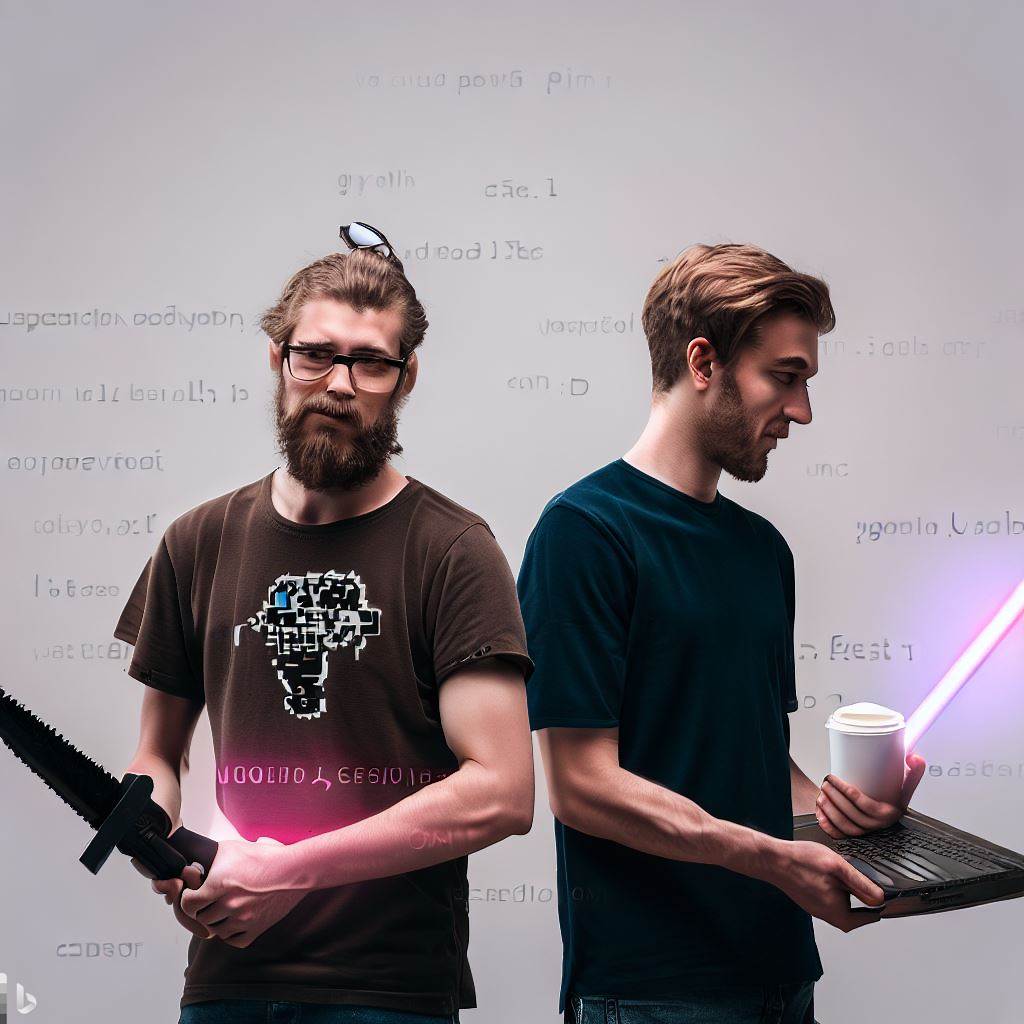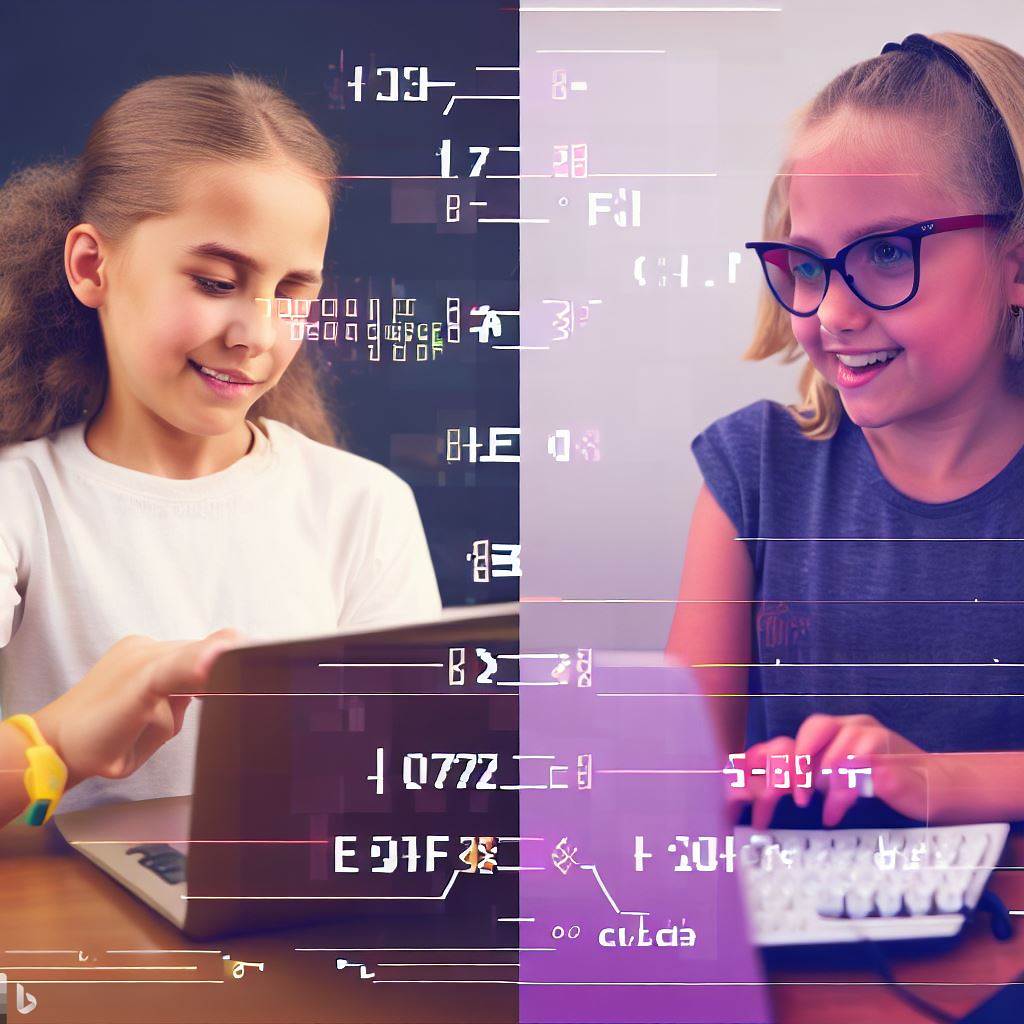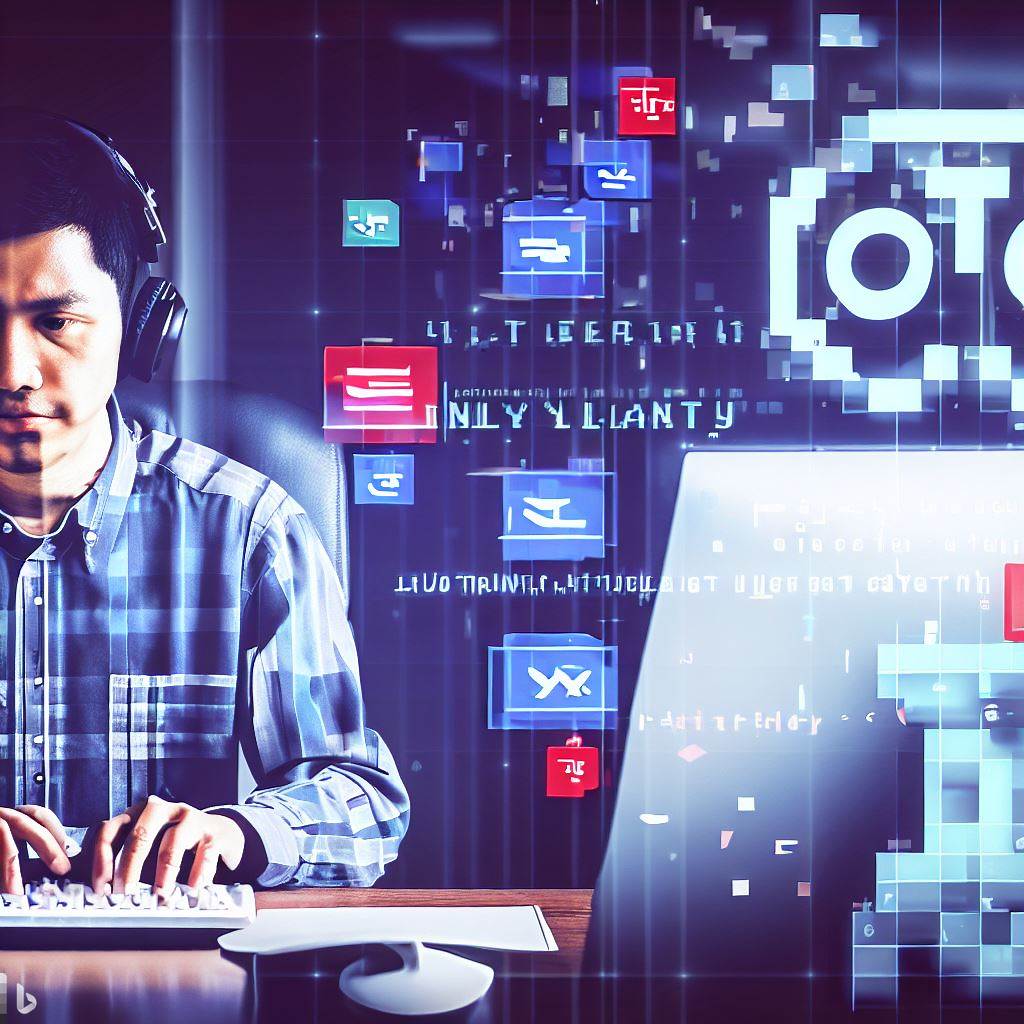Introduction
In today’s digital era, dynamic gaming and programming fusion replace tedious programming, transforming developers and coding wars.
This fusion is undeniably vital. Gaming captivates millions, transcending age, gender, and culture, and engaging users interactively. Programming propels technological advancement, shaping digital experiences.
Merging these disciplines generates a powerful synergy, enhancing immersive, enjoyable coding learning. Gamifying programming offers challenges, rewards, interactivity, and motivating skill improvement.
Gaming and programming fusion heralds coding wars’ future, accessible for beginners and competitive for experts, fostering engagement, inclusivity, and industry relevance.
Gaming and programming fusion profoundly impact coding, revolutionizing learning, development, and coding war competition.
Embrace it for an accessible, enjoyable coding future, spurring digital growth and innovation.
The Intersection of Gaming and Programming
Similarities and overlaps between gaming and programming
Gaming and programming have many similarities, making their fusion a natural tech evolution. Both demand problem-solving and logic. In games, players tackle challenges and puzzles for progression.
Similarly, programmers face coding challenges and must think critically to find solutions.
Furthermore, both gaming and programming involve creating and designing virtual worlds. Game developers and programmers can shape their universes and bring them to life through code.
Whether it’s building intricate landscapes or developing complex algorithms, both gamers and programmers have a hand in shaping virtual environments.
The rise of gamified coding platforms and their benefits
Gamified coding platforms have surged in recent years, merging gaming and programming education. They offer an interactive, accessible, and enjoyable learning experience for beginners.
Gamified coding platforms benefit through hands-on learning promotion. Users engage in coding challenges and puzzle-solving instead of depending solely on theory and lectures.
This active participation enhances programming understanding, maintains motivation, and fuels excitement for learning.
Additionally, gamified coding platforms often include competitive features. Users can compete with peers, spurring motivation and progress in their coding journey.
Examples of popular games with coding elements (e.g., Minecraft, Roblox)
Several popular games have successfully integrated coding elements, further blurring the lines between gaming and programming.
Tech Consulting Tailored to Your Coding Journey
Get expert guidance in coding with a personalized consultation. Receive unique, actionable insights delivered in 1-3 business days.
Get StartedMinecraft, a sandbox game, enables players to shape the world through code using its “Redstone” programming language. Redstone code empowers players to create, automate, and innovate.
Roblox, another widely popular game, provides a platform for users to develop their games using Lua programming language.
Roblox empowers users to craft game mechanics, enabling them to be both gamers and programmers simultaneously, actively partaking in game development.
These examples illustrate how incorporating coding elements into games can enhance the overall gaming experience.
It not only provides players with additional creative outlets but also introduces them to programming concepts in a fun and interactive way.
In general, gaming and programming fusion offers immense potential, fostering creativity, innovation, accessibility, enjoyment, critical thinking, and problem-solving skills.
Coding wars’ future appears promising as gaming and programming converge.
Read: Why Coding Games Are The Best Way To Learn Java

Benefits of Gaming in Learning Programming
There is a growing trend of integrating gaming and programming, as it offers several benefits in the learning process.
In this section, we will explore the advantages of gaming in learning programming and how it can shape the future of coding wars.
1. Enhancing problem-solving and critical thinking skills through gaming
- Gaming requires players to solve complex problems and overcome challenges.
- By playing games, programmers can develop their problem-solving abilities in a fun and engaging way.
- In-game situations often mirror real-world programming scenarios, allowing learners to apply their knowledge effectively.
- Gaming improves critical thinking skills by encouraging players to analyze situations and make strategic decisions.
- Programming games, such as puzzle-based coding challenges, provide a hands-on approach to learning and reinforce problem-solving skills.
2. Building creativity and imagination in programming through gameplay
- Gaming offers a creative outlet for programmers, allowing them to express themselves through interactive storytelling and design.
- Through game development, programmers can create unique experiences that showcase their creativity and imagination.
- Playing games inspires programmers to think outside the box and come up with innovative solutions to programming problems.
- Programmers who actively engage in gaming tend to have a more imaginative and innovative approach to coding.
- Gaming encourages programmers to push boundaries and explore new possibilities, leading to groundbreaking advancements in the field of programming.
3. Fostering teamwork and collaboration in multiplayer gaming and coding competitions
- Multiplayer gaming and coding competitions create opportunities for programmers to collaborate with others.
- Collaborative gaming environments promote teamwork, communication, and the exchange of ideas among programmers.
- Working together in gaming and coding competitions enhances programmers’ ability to work in teams on real-world projects.
- Programmers learn to understand and value different perspectives, leading to more inclusive and diverse programming communities.
- Through multiplayer gaming, programmers can build networks and communities, fostering knowledge sharing and skill development.
Gaming enriches programming learning, offering benefits like problem-solving, critical thinking, and strategic decision-making. It sparks creativity and innovation.
Multiplayer gaming and coding competitions promote teamwork and inclusivity in the programming community.
With these advantages in mind, gaming is undoubtedly shaping the future of coding wars.
As the integration of gaming and programming evolves, expect more immersive learning experiences to prepare programmers for the digital era’s challenges.
Build Your Vision, Perfectly Tailored
Get a custom-built website or application that matches your vision and needs. Stand out from the crowd with a solution designed just for you—professional, scalable, and seamless.
Get StartedRead: Getting Started with JavaScript: Best Coding Games
The Future of Coding Wars
1. Gaming-inspired coding challenges and competitions
Gaming has always been a source of inspiration for developers, and this trend is expected to continue in the future.
Coding Wars will incorporate elements of gaming to make the challenges more engaging and exciting for participants.
By introducing gaming-inspired coding challenges, developers can tap into the natural competitive spirit of gamers and create a more immersive coding experience.
These challenges will test programmers’ skills and their ability to think creatively, solving problems in a fast-paced, dynamic environment.
For example, instead of traditional coding problems, participants might have to navigate through a virtual maze or defeat virtual enemies by writing efficient algorithms.
These challenges will not only test coding abilities but also require players to think strategically and adapt quickly to changing circumstances.
2. Virtual reality (VR) and augmented reality (AR) in coding and gaming
Virtual reality and augmented reality technologies have already made significant advancements in the gaming industry, and their potential in coding wars is immense.
In the future, participants might be able to code and test their projects in virtual or augmented environments.
Imagine stepping into a virtual coding arena where you can see your code come to life in a three-dimensional space.
You can interact with your code and debug it in real time using virtual tools and interfaces.
This level of immersion and interactivity will not only make coding more exciting but also enhance the learning experience for participants.
Similarly, augmented reality can enable participants to visualize and manipulate code in the real world. They can use AR headsets or devices to overlay virtual code snippets onto physical objects or surfaces.
This interactive approach will provide a unique perspective on coding and enable programmers to explore new possibilities and solutions.
Optimize Your Profile, Get Noticed
Make your resume and LinkedIn stand out to employers with a profile that highlights your technical skills and project experience. Elevate your career with a polished and professional presence.
Get Noticed3. Artificial intelligence (AI) advancements in game development and programming
Artificial intelligence has already revolutionized various industries, and its integration into game development and programming will shape the future of coding wars.
AI-powered game engines and tools can generate dynamic and adaptive challenges for participants.
By analyzing the abilities and preferences of each participant, AI algorithms can create personalized coding challenges that are tailored to their skill level.
These challenges can adapt in real time, providing an optimal learning experience and ensuring that participants are constantly pushed to their limits.
AI can also play a crucial role in evaluating and providing feedback on participants’ code submissions. Instead of relying solely on human judges, AI algorithms can analyze code for efficiency, readability, and correctness.
This automated evaluation process will not only save time but also provide more objective and consistent feedback to participants.
In summary, gaming and programming fusion will revolutionize coding wars with gaming-inspired challenges, VR, AR, and AI for a dynamic, immersive experience.
The future of coding wars is exciting, and it promises to push the boundaries of creativity, problem-solving, and collaboration among programmers.
Real-World Applications of the Fusion
1. The use of gaming elements in educational programming courses
Incorporating gaming elements into educational programming courses can significantly enhance student engagement.
Gamification of coding education can make learning more interactive and enjoyable for students.
By using game design principles, educators can create coding challenges and puzzles, increasing students’ problem-solving abilities.
Through gamification, students can track their progress, earn rewards, and compete with classmates, fostering a competitive and motivating learning environment.
Furthermore, game-based learning can simulate real-world scenarios, allowing students to apply their coding skills practically.
Gaming elements can also teach students valuable soft skills, such as collaboration, communication, and perseverance.
2. Gamification in corporate training and skill development
Gamification has gained popularity in corporate settings as a way to train employees and develop their skills.
Incorporating gaming elements into training programs makes the learning process more immersive and engaging.
Employees can interact with virtual scenarios, simulating real-life situations they may encounter in their job roles.
Through gamification, employees can acquire new skills and knowledge while enjoying themselves.
Leaderboards and badges can be used to encourage healthy competition among employees, promoting continuous improvement.
Gamification also allows for personalized learning experiences, tailoring training programs to each employee’s needs and interests.
Additionally, gamified training programs can provide instant feedback, helping employees identify areas for improvement and progress in their development.
3. Opportunities for game developers with programming skills
The fusion of gaming and programming opens up exciting opportunities for game developers with coding skills.
Developers with a strong understanding of programming languages can create innovative and immersive gaming experiences.
By utilizing their programming knowledge, developers can build game mechanics that enhance gameplay and create captivating user experiences.
Game developers can contribute to the development of game engines and frameworks, pushing the boundaries of what is possible in the gaming industry.
Game developers with programming skills can also leverage their expertise to create educational games or simulations for various industries.
As the demand for interactive and gamified experiences continues to grow, game developers with programming skills are well-positioned in the job market.
The fusion of gaming and programming has real-world applications in various fields.
Using gaming elements in educational programming courses can significantly improve student engagement and foster essential skills.
Gamification in corporate training enhances employee learning and development by creating immersive and interactive experiences.
Game developers with programming skills have numerous opportunities to innovate and contribute to the gaming industry.
The fusion of gaming and programming is shaping the future of coding wars and opening up exciting possibilities for both education and industry.
Read: A Deep Dive: How Coding Wars Shape Tech Industry Hiring
Challenges and Considerations
1. Addressing potential issues of excessive screen time and health concerns
In the fusion of gaming and programming, an important consideration is the potential negative impact of excessive screen time on health.
It is crucial to implement measures that encourage healthy gaming habits, such as setting time limits and promoting regular physical activity.
Furthermore, developers must also prioritize creating ergonomic and user-friendly interfaces to minimize the risk of musculoskeletal disorders.
By addressing these concerns, the future of coding wars can ensure the well-being of programmers.
2. Ensuring inclusivity and accessibility in gamified coding platforms
As the fusion of gaming and programming advances, it is essential to address potential barriers that may exclude certain individuals.
Developers should prioritize designing platforms that are accessible to people with disabilities, ensuring equal opportunities for participation.
Inclusivity can also be promoted by providing multilingual support, catering to diverse cultural backgrounds.
By ensuring that gamified coding platforms are inclusive, the future of coding wars can inspire a wider range of individuals to pursue programming.
3. Balancing the fun of gaming with the structured aspects of programming
The fusion of gaming and programming should strike a balance between the enjoyable nature of gaming and the structured demands of programming.
Developers should aim to create gamified coding platforms that offer entertainment value while fostering valuable programming skills.
This balance can be achieved by integrating engaging storylines, rewards systems, and interactive challenges into the coding experience.
By striking this balance, coding wars can become an enjoyable yet effective educational tool for aspiring programmers.
Read: 10 Key Programming Basics for US Beginners
Conclusion
The fusion of gaming and programming marks a coding revolution, shaping the future of coding wars in profound ways.
It enhances engagement, inclusivity, and skill development. This evolution reflects the tech industry’s adaptability and equips coders with modern skills.
It democratizes coding wars, welcoming novices and experts alike.
Overall, the fusion of gaming and programming ensures that coding competitions remain engaging and relevant in the tech world.




